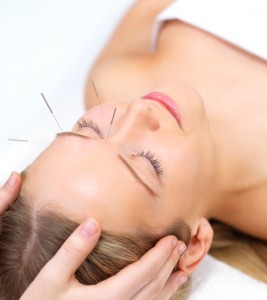Acupuncture
 Acupuncture is a component of traditional Chinese medicine that originated in China over 3,000 years ago. Although there are records of acupuncture being used hundreds of years ago in Europe, it was during the second half of the twentieth century that it began to spread more rapidly in Western Europe, the United States and Canada. In 1997, the U.S. National Institutes of Health (NIH) documented and publicized acupuncture’s safety and efficacy for treating a wide range of conditions. According to WHO (World Health Organization) acupuncture is effective for treating at least 28 conditions, while evidence indicates it may have an effective therapeutic value for many more.
Acupuncture is a component of traditional Chinese medicine that originated in China over 3,000 years ago. Although there are records of acupuncture being used hundreds of years ago in Europe, it was during the second half of the twentieth century that it began to spread more rapidly in Western Europe, the United States and Canada. In 1997, the U.S. National Institutes of Health (NIH) documented and publicized acupuncture’s safety and efficacy for treating a wide range of conditions. According to WHO (World Health Organization) acupuncture is effective for treating at least 28 conditions, while evidence indicates it may have an effective therapeutic value for many more.
How Acupuncture Works
Acupuncture points are areas of designated electrical sensitivity. Very fine needles are inserted at these points to stimulate various sensory receptors that, in turn, stimulate nerves which transmit impulses to the hypothalamic-pituitary system at the base of the brain.
The hypothalamus-pituitary glands are responsible for releasing neurotransmitters and endorphins, the body’s natural pain-killing hormones. It is estimated that endorphins are 200 times more potent than morphine. Endorphins also play a big role in the functioning of the hormonal system. This is why acupuncture works well for back pain and arthritis and also for PMS and infertility.
Some of the physiological effects observed throughout the body include increased circulation, decreased inflammation, relief from pain, relief of muscle spasms and increased T-cell count, providing stimulation to the immune system.
Traditional Chinese Medicine is based on an ancient philosophy that describes the universe, and the body, in terms of two opposing forces: yin and yang. When these forces are in balance, the body is healthy. Energy, called “qi” (pronounced “chee”) flows along specific pathways, called meridians, throughout the body. This constant flow of energy keeps the yin and yang forces balanced. However, if the flow of energy gets blocked, like water getting stuck behind a dam, the disruption can lead to pain, lack of function, or illness. Acupuncture therapy can release blocked qi in the body and stimulate function, evoking the body’s natural healing response through various physiological systems. Modern research has demonstrated acupuncture’s effects on the nervous system, endocrine and immune systems, cardiovascular system, and digestive system. By stimulating the body’s various systems, acupuncture can help to resolve pain, and improve sleep, digestive function, and improve one’s sense of well-being.